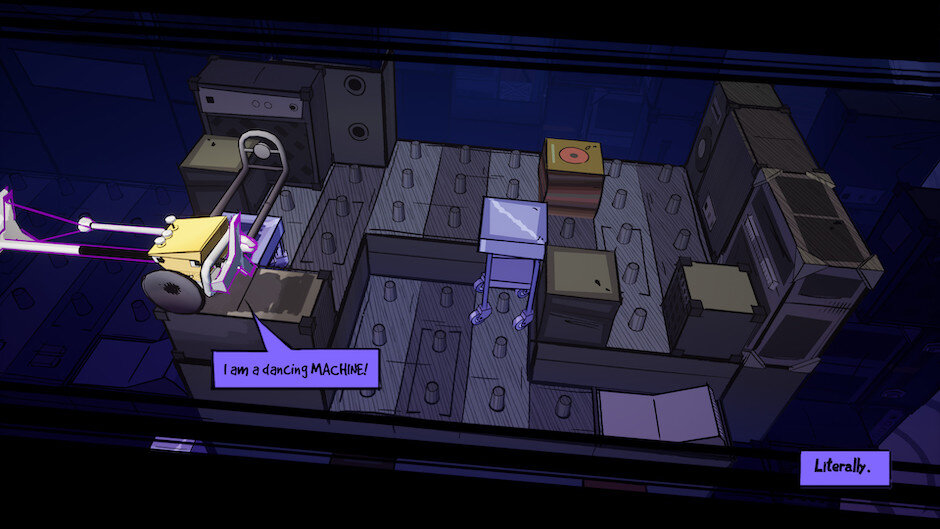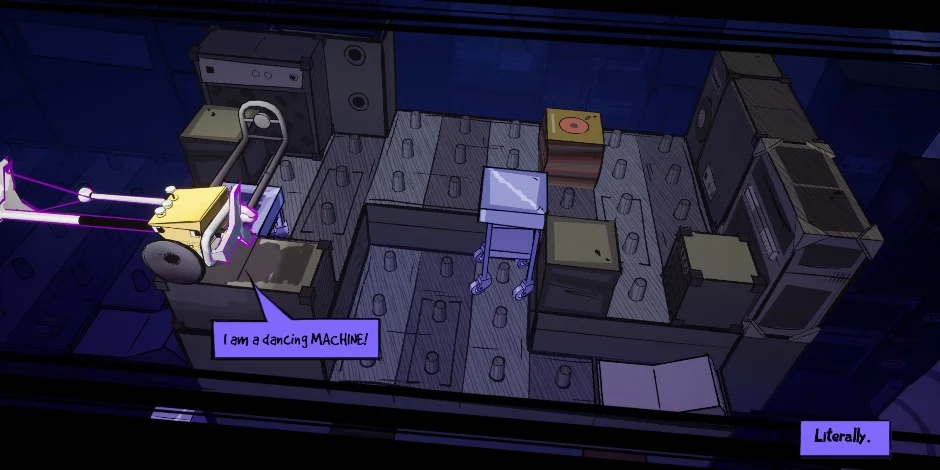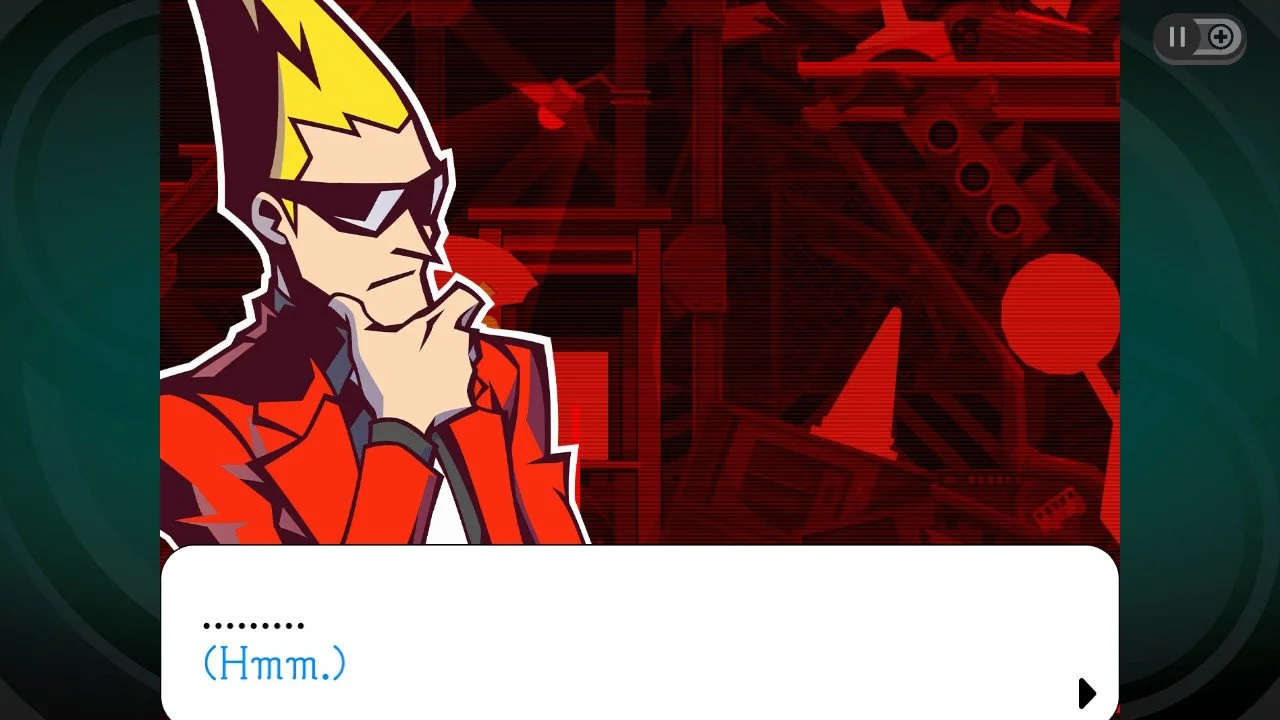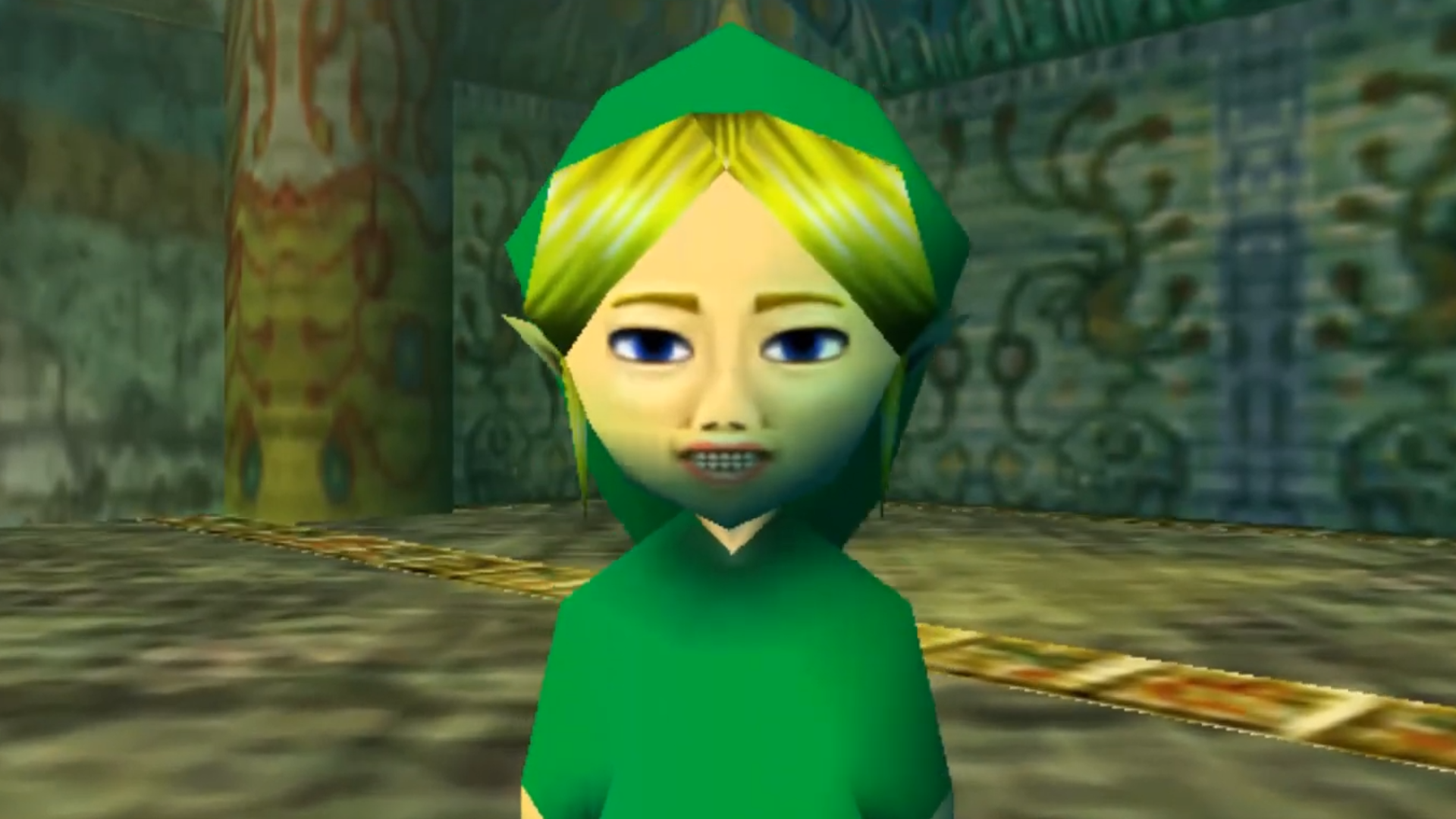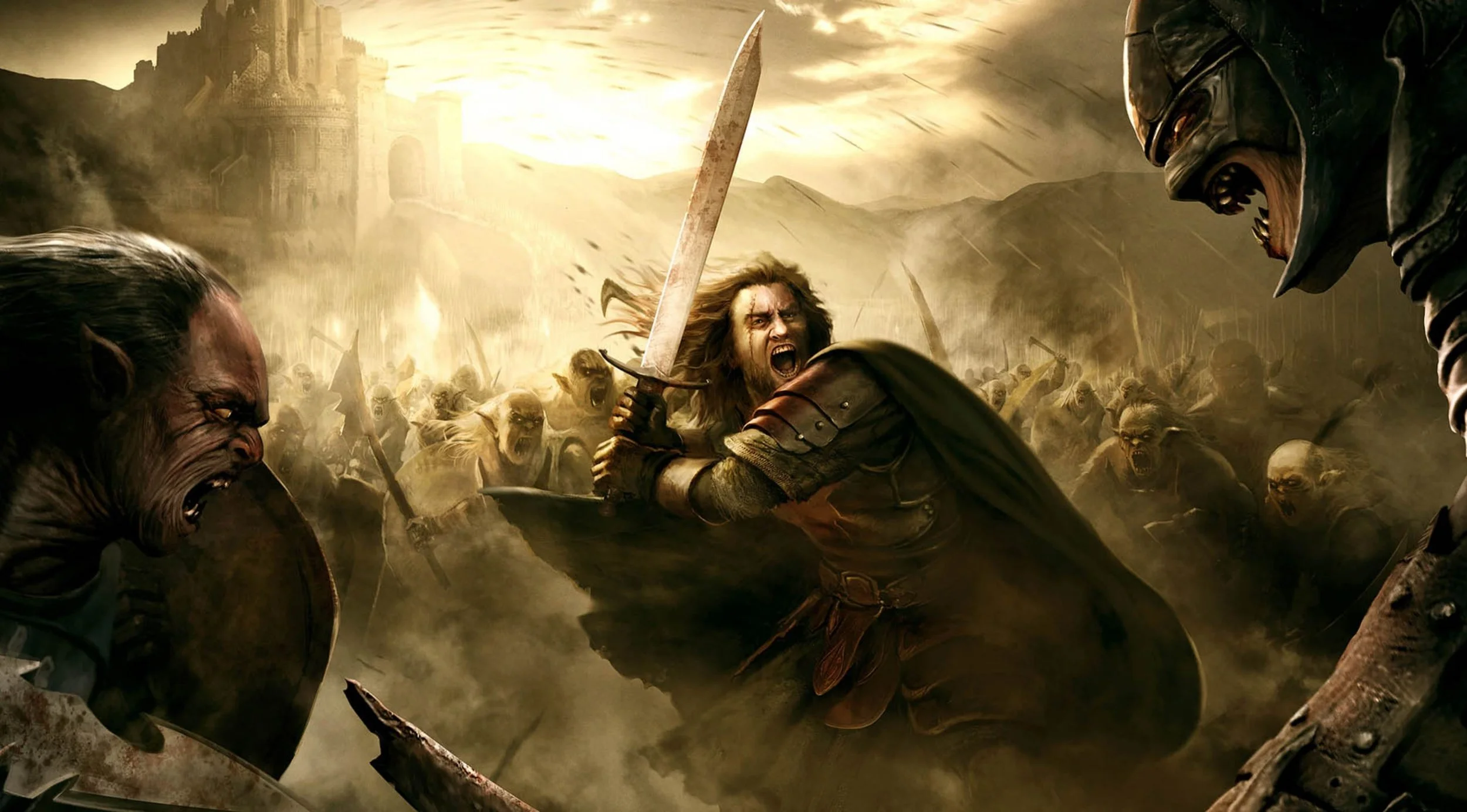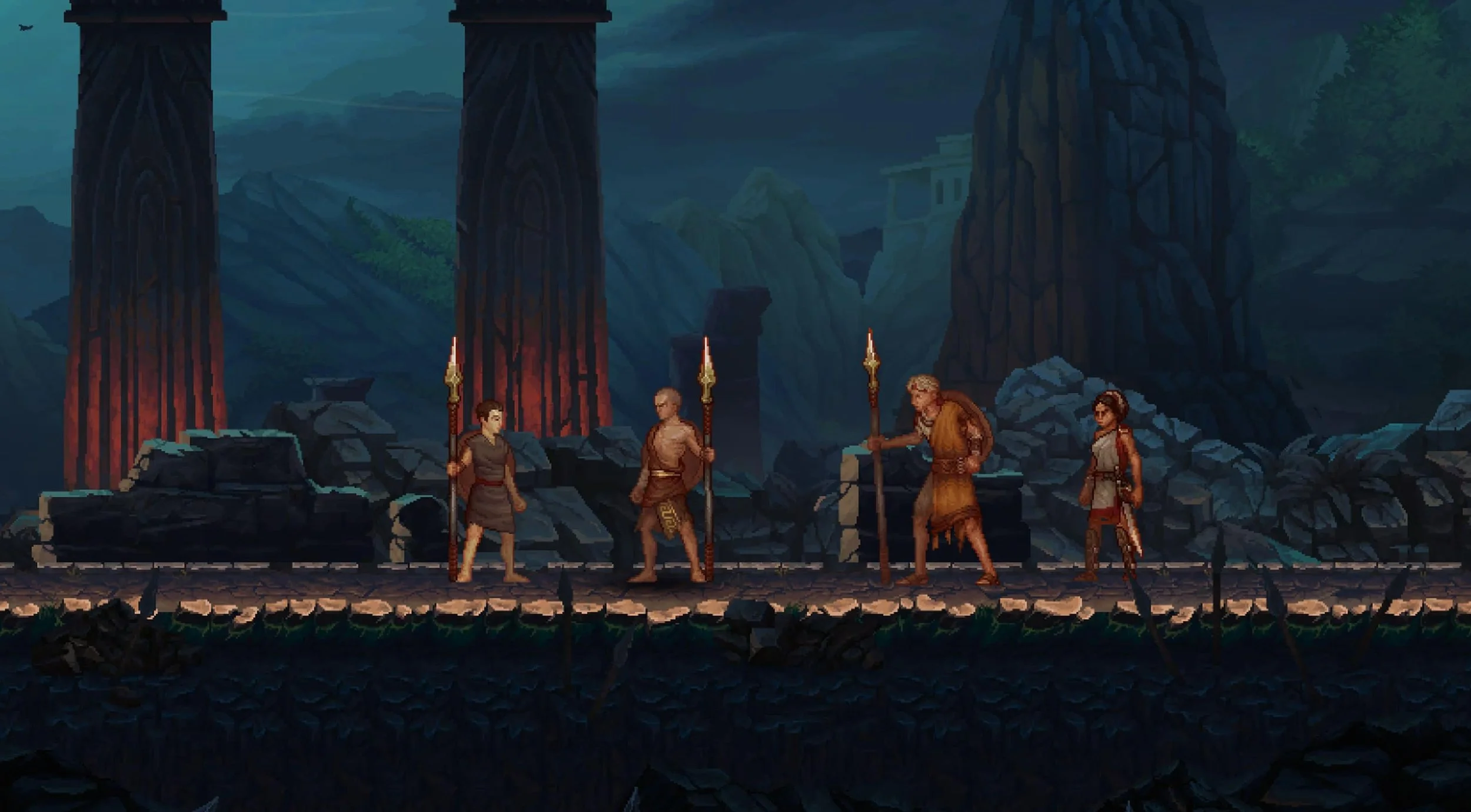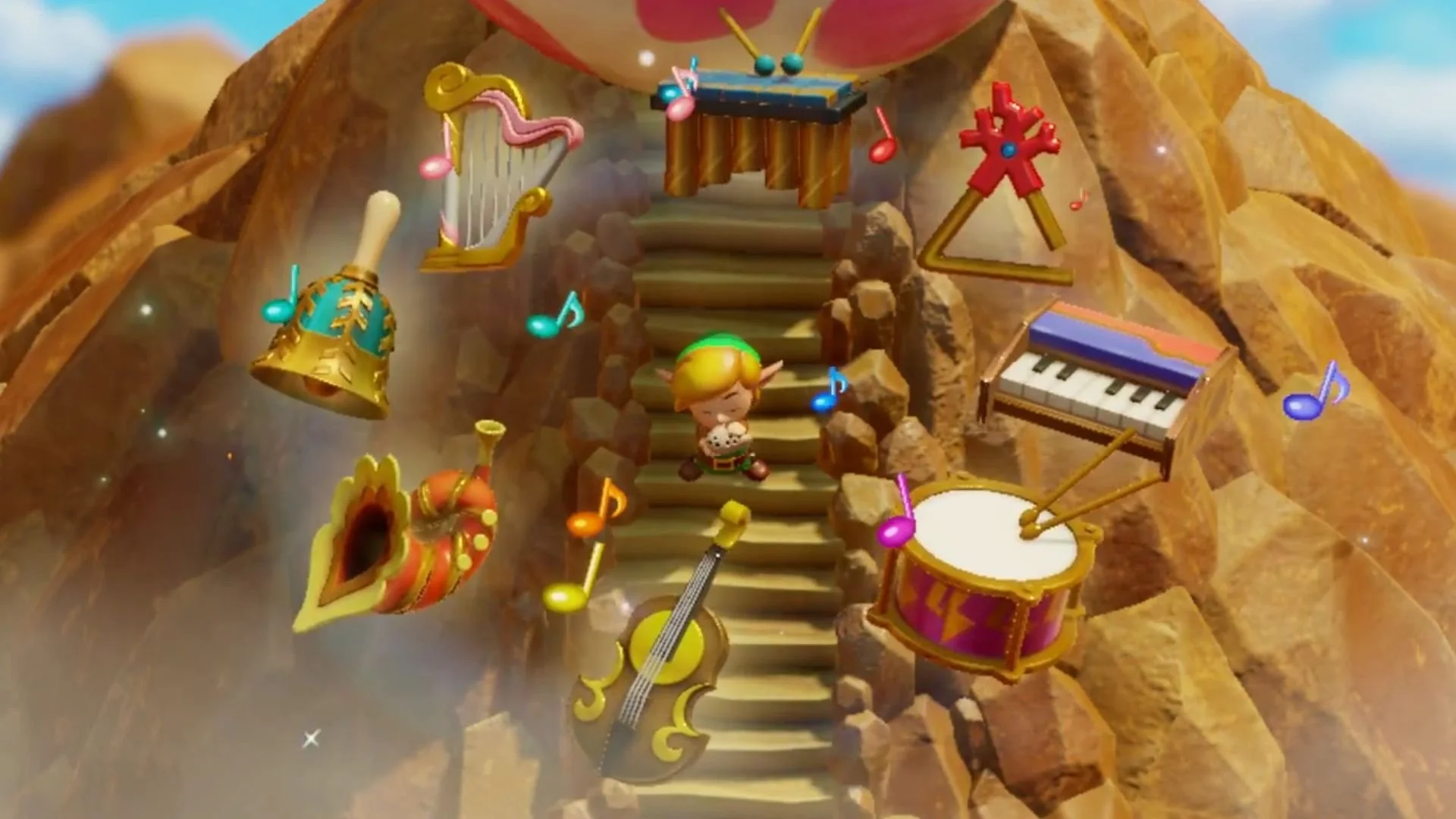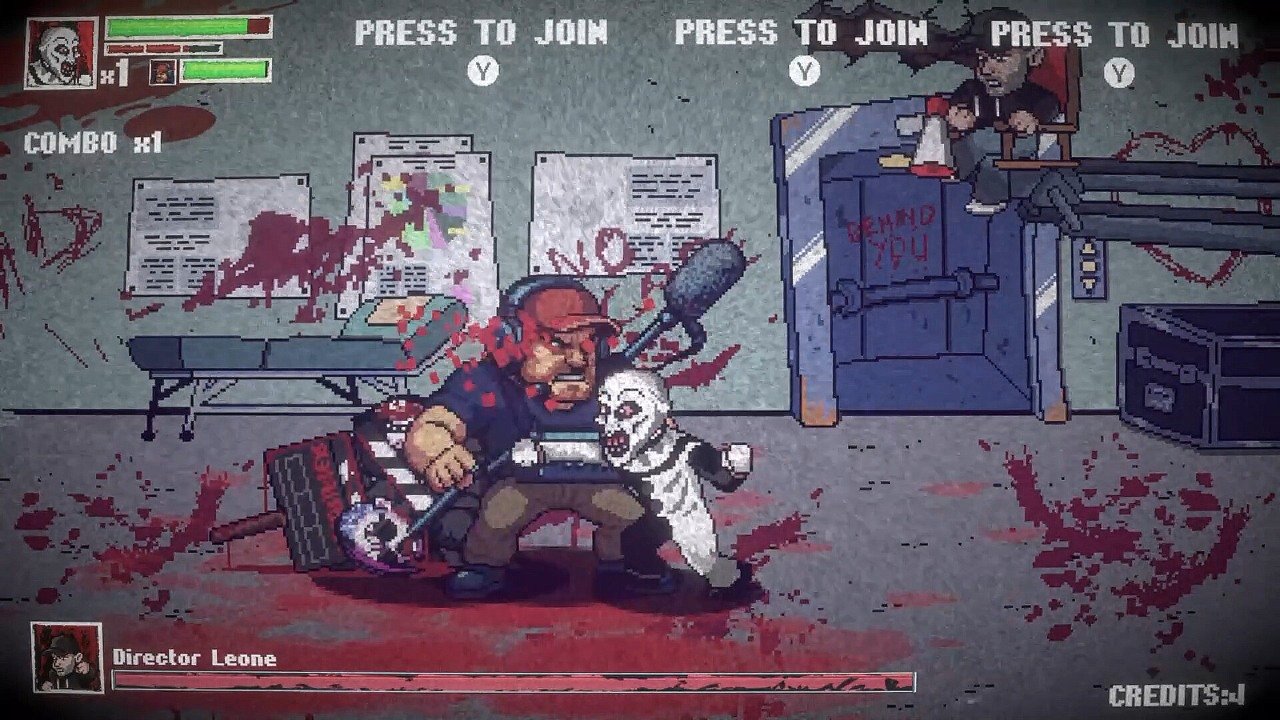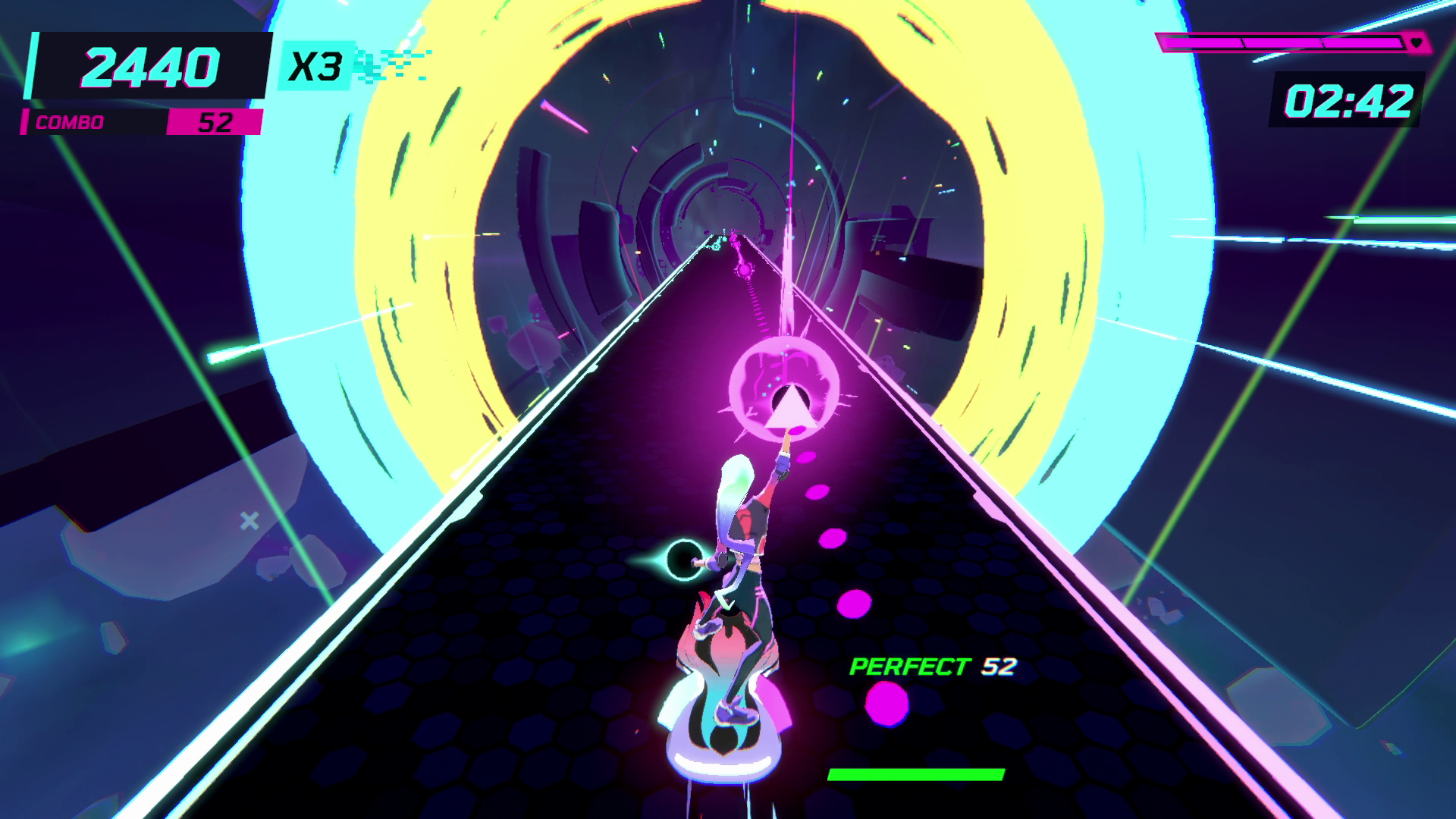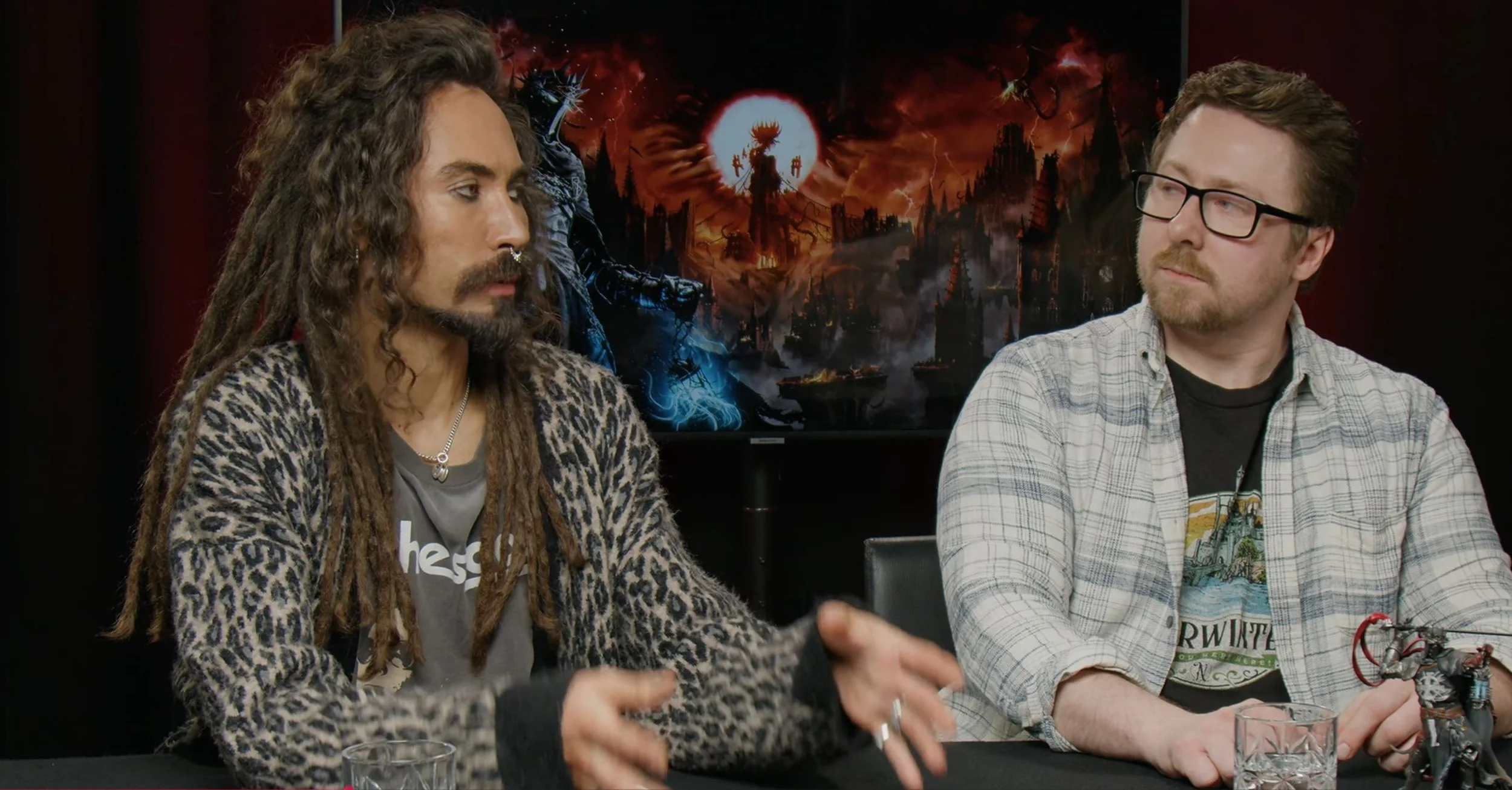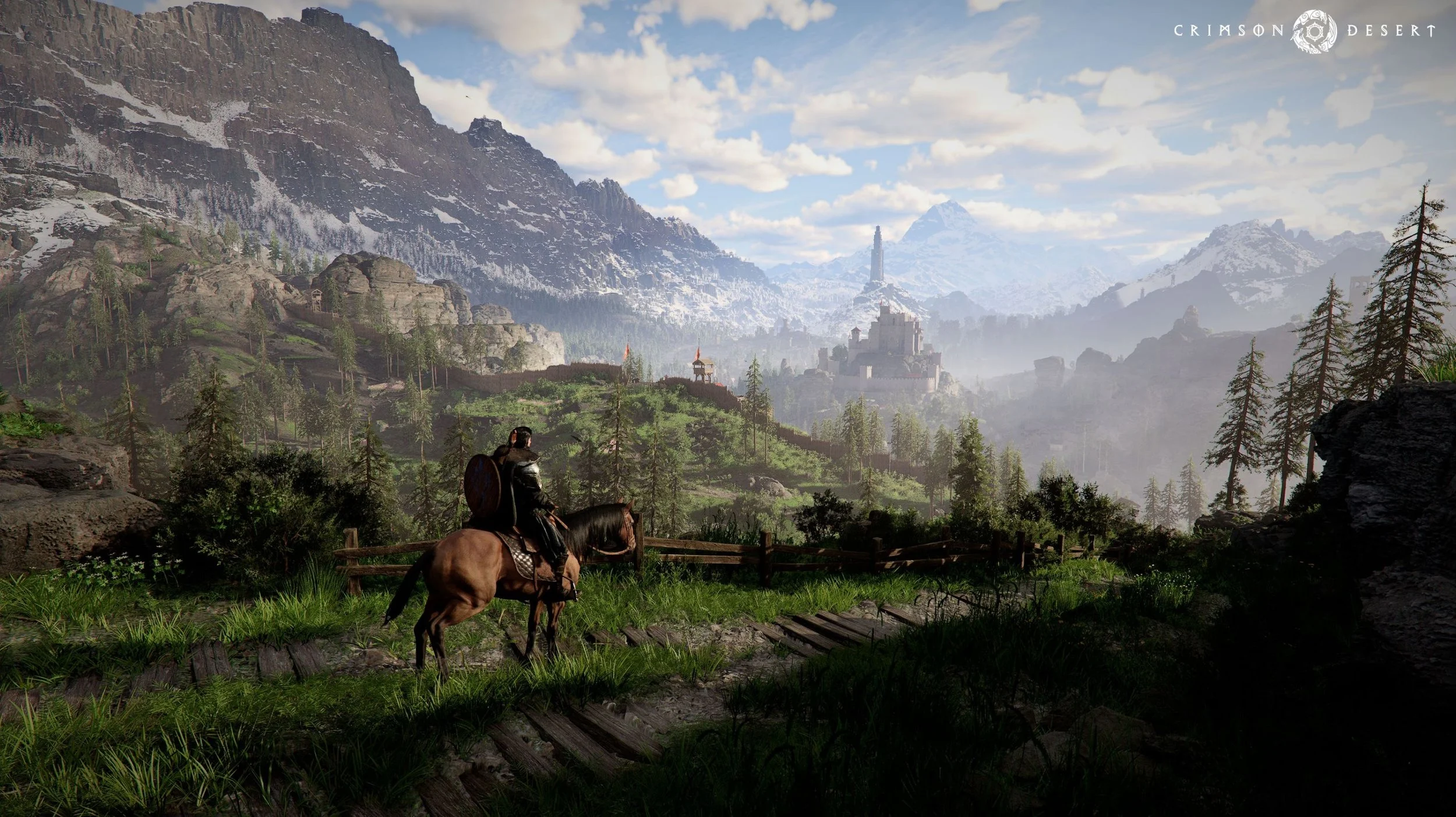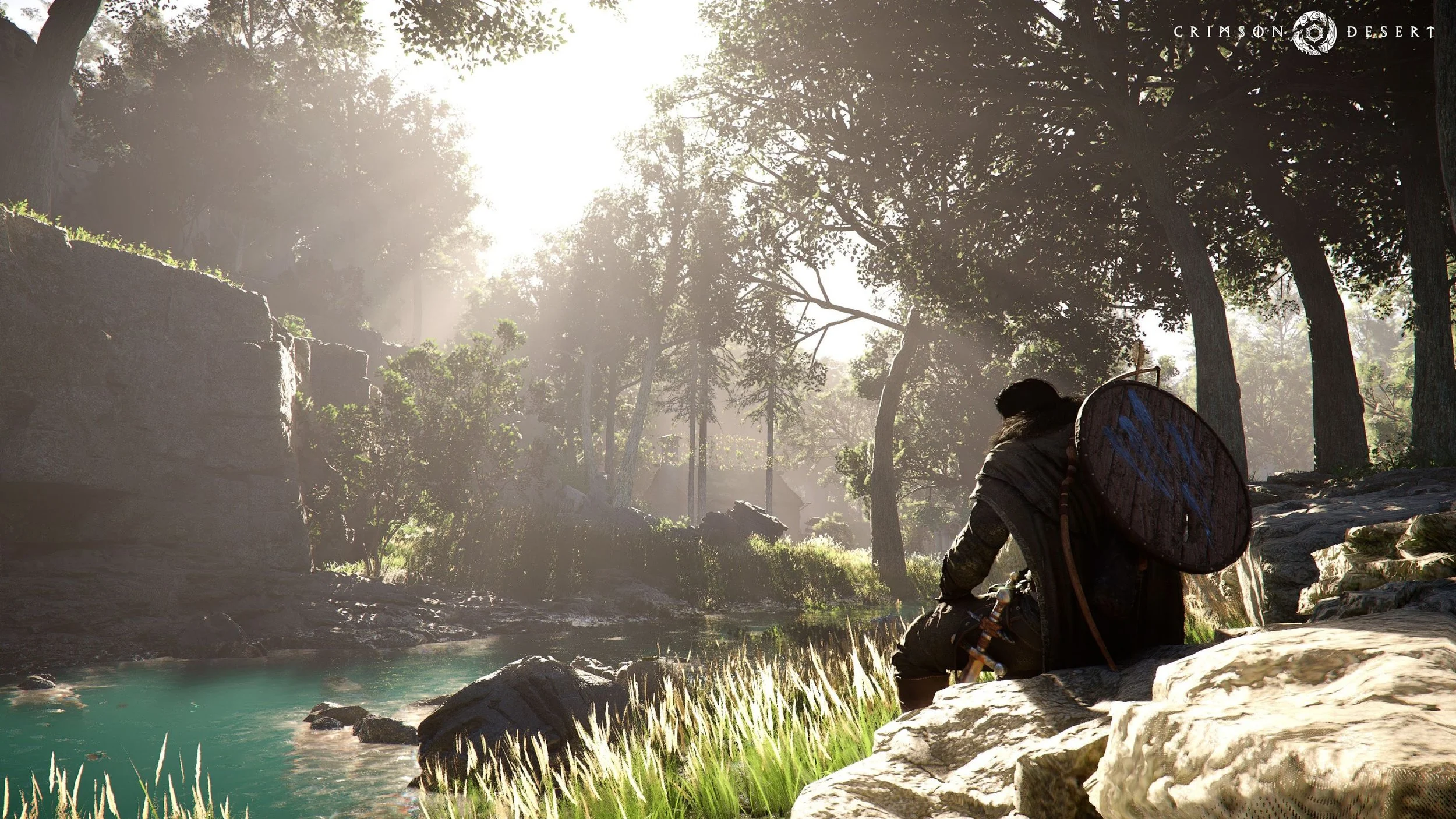Nintendo Switch code provided by Gwen Frey
Kine is the archaic plural of the word “cow” if you were wondering. It’s also the name of the puzzle game from developer Gwen Frey, who has established the indie studio Chump Squad. Whether you have one of those cows while playing her musically-minded adventure is entirely up to the patience you display while deconstructing puzzles. There is charm and warmth carefully threaded into Kine and its jazz-filled story—a drum, an accordion, and a trombone are aspiring musicians, but they’ve got a lot to learn. Prepare for challenges ahead because just as the instruments face an uphill climb against the odds of the industry, so too will you experience obstacles as the mechanics of the game unfold in perplexing ways.
STORY
You will witness the journey of three different musicians as they strive for artistic acclaim and industry success. Quat, the drum. Roo, the accordion. And Euler, the trombone. Your introduction to each of these sentient instruments will provide the opportunity to learn the singular ways they traverse an environment. And it will also reveal their hopes and dreams. The adventurous trio in Kine will practice in recording studios. They’ll suffer through menial jobs. Strut their stuff on stage. Show off Quat’s determination and endless optimism, Roo’s vivacity and team spirit, and Euler’s desire for acceptance and adulation.
Successful completion of each smaller story arc will usually unlock another branch of the narrative. There’s even a romance between Roo and Euler that you can progress through awkward dancing and haphazard sailing. And in every scenario, quirky dialogue and sassy retorts will bounce between the instruments in speech bubbles.
The investment in the lives and professional trajectories of the musical squad enhances the experience of playing Kine because there’s something to care about. It’s a difficult puzzle game, sure. But it’s got heart.
GAMEPLAY
The first few “movements” in each “composition” do a thorough job of detailing how Quat, Roo, and Euler will move around. These early levels possess one solution that has few dead ends to frustrate gamers. Once you’ve navigated through the training-wheel phase, though, Kine really opens up. Levels get large. Movement must still be precise, but the correct path is lost amidst a sea of possibilities. It’s like a Where’s Waldo? picture. The complexity rises once more when two or three instruments must work together. Frey manipulates the difficulty in Kine with the individual movement of Quat, Roo, and Euler.
Quat, the drum, has an attached cymbal pole. So his squat body can roll around on space at time, but he can also slide on that cymbal pole to either push his central mass up or away, depending on his orientation.
Other than rolling around, Roo functions nothing like that. Her metal limbs can be tucked in or expanded. That expansion, if Roo is on her side, can raise her up—which can either aid in traversing a gap or reaching one of the other instruments. Alternatively, her accordion mechanism can stretch out a few spaces. This can push Roo around, lift her body up into the air, or interact with Quat or Euler. Again, depends on the orientation.
And then poor Euler is the weirdest of them all. The trombone has two bulky extensions that require wonky movement. They can push Euler away from barriers or suspend him above other obstacles. Maneuvering his bulky L-shape around a level is laborious at times.
You will learn how to move each of these characters independently. But then you have to manage them all together. But that’s how it has to be if you want to be in the band. You have to find your harmony. Which can be a tricky thing. And it’s definitely tricky in Kine. Which leads me how the game is compartmentalized and how moves can be edited.
If you get stuck on any levels, that can halt your progression in the game. Finishing one level unlocks another one. And partial completion of a level with multiple puzzles doesn’t factor into that. So it’s possible to hit a wall. You’ll just have to keep flipping around until you discover where you went wrong.
The puzzles do include an option to undo your actions. But it struggles to fully affect how a player approaches a particular obstacle. You can rewind one action at a time. And there is also the option to reset a level. The rewind action doesn’t also seem viable, though, because you might be several dozen moves into an attempt and you want to go back to midway through your past actions. It’s tedious to revert back one move at a time, so I frequently just reset the whole level. The forced 90° shifts in perspective don’t always help to visualize the correct path, either.
Overall, Kine is very approachable and there aren’t any obtuse elements that detract from the gameplay.
VISUALS
The hand-drawn world of boxes, blocks, musical notes, and talking instruments is charming. It’s a simple design, and it works. Frey has done an admirable job of bringing life to the screen without distracting the player from the matter at hand—which is the kinematic contortions of a drum, an accordion, and a trombone.
REPLAYABILITY
Unless there are unfinished side quests that deserve your attention, it will likely be a one-time adventure with Quat, Roo, and Euler. A dearth of additional content means that your mastery of the puzzles is a limited experience. I probably won’t return just for the sake of replaying old levels.
WHAT IT COULD HAVE DONE BETTER
Frey has done an outstanding job as a solo developer. There is a lot to like about Kine. It’s a puzzle game with heart and wit that will sustain you for multiple hours while you contemplate how to reach a certain objective.
However, there are times when a single move is necessary and its remarkably difficult to discern how to achieve that maneuver. So Kine can become taxing, if you encounter a mental block. The enchanting veneer can wear off at those times. Maybe a feature that suggests hints or reveals crucial moves would alleviate mental suffering.
My other complaint would be the progression system. Forcing players to finish one section before unlocking another can be annoying. I would have preferred something like a completed puzzle total that would enable players to reach new parts of the story.
VERDICT
Chump Squad is a studio to watch, and I’m excited to see what Gwen Frey is working on next. Kine is a fun puzzle game with plenty of mazes to explore. With music, romance, friendship, and the all-too-human desire to achieve your dreams, there is surely something for everyone in this indie game.



